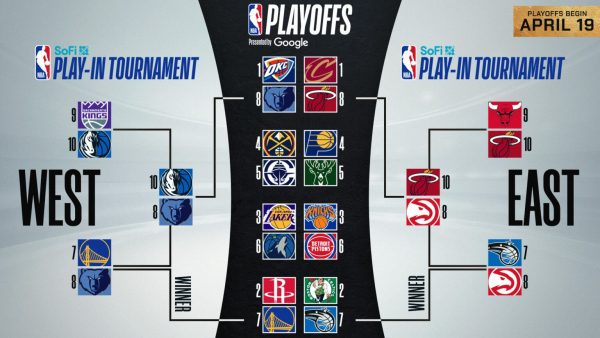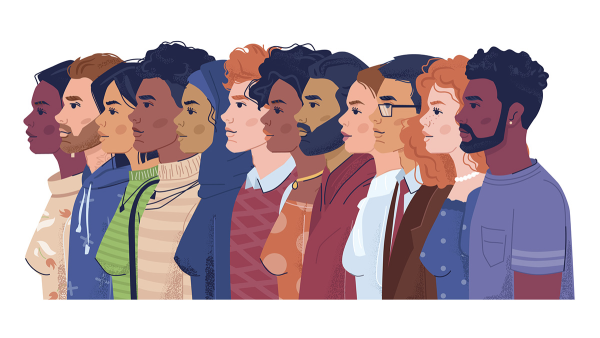The Game of Deception
Misleading mobile game ads are a problem, and need to be stopped.
The mindless tapping of a glass screen throughout the day allows for many delusive ads to strike. What seems like a minor inconvenience, stopping the gameplay for a minute of cheery music and neon colors, could lead to a big problem for those who decide to download these games. What is downloaded is nothing like the game displayed, at all, leaving the player enraged and unable to get that minute of their life back.
Misleading ads for mobile games should be removed from app stores as they are both annoying eyesores and they trick a large audience into downloading content that isn’t anything like players anticipated.
It’s easy to imagine the problems that could arise from this epidemic plaguing mobile games. The largest issue with these games is the waste of time and money on a game that wasn’t even promised to them in the first place. This could be equated to getting a huge present for Christmas and unwrapping it to find a single sock in an Amazon box. The deception feels personal at this point, making this an infuriating trick used by game developers for more downloads.
It’s a cheap move, the ads often showcasing graphics or minigames that are nothing like those that are used in the actual games. Two examples that use this method are older ads for both “Homescapes”/”Gardenscapes” and the game “Fishdom”. Those ads for these games have both shown various minigames, one that both have used being a puzzle minigame where players remove dividers separating the character from the exit as well as harmful things that would result in a “game over”.

This would be fine, of course, if that is what the actual game was about.
Instead, both “Fishdom” and “Homescapes”/”Gardenscapes” are games where players accomplish goals by matching different colored icons. Ads like these are purchased under the false narrative that a person is receiving the first game when they are really getting the second, meaning this is all a complete waste of a person’s time. But that’s only when the ad is free. Some mobile games require money to be installed, so imagine the shock when the game doesn’t match the ad in that scenario.
Another large issue with these deceptive ads is that they are, for the most part, advertised to younger children. The bright colors, thrilling music and simple gameplay easily appeals to these games’ target audiences. Often mass produced, these ads pop up again and again on the screens of younger players, tempting them to install or purchase the game without understanding that these ads are not always displaying what appears in the app.
The rest of us are left to view these ads that are often created cheaply in order to have multiple ads circulating at one time. These advertisements are released in bulk, keeping the ads constantly buzzing across our screens to annoy those who have the utter joy of viewing them. It leaves us with the bombardment of easily played ads, comic sans plastered across the top, screaming “99% of people can NOT pass this level!” It’s infuriating to say the least.
The final colossal issue with these false ads is the fact that they shouldn’t even exist in the first place – they’re illegal!
According to the FTC (Federal Trade Commission), the distribution and creation of ads with misleading content can lead a game distributor into a civil lawsuit or other legal action under the FTC’s jurisdiction. This could mean a fine of up to $46,517 per violation as well as other penalties, depending on the case. If money was gained through the purchase of games that are violating this law, refunds to all consumers must also be paid by the person liable for the creation of these game ads or the company of the game itself. There are many different punishments a person could receive depending on what’s going on, but these ads are illegal nonetheless.
People aligned with these companies, and even some consumers, will say that these game ads aren’t doing any harm to people due to the fact that they aren’t paying for some of these games in the first place. This means no monetary harm to those who purchase these games based on the ads they see.

The fact that these people aren’t taking any monetary losses, in this case, is true, however, it is still illegal to make these ads and a huge waste of people’s time. Time is money, so this issue of going through the motions to download a game that’s not even advertised is still agonizing.
So what should we do to fix this issue? Simple, make appropriate game ads that match the content in the actual game. This will keep people out of trouble with the law as well as keep consumers from downloading a game just to delete it in a few seconds. We can enforce app creators to do this as customers by reporting false advertisements when these ads appear on our digital screens and amassing awareness of these ads that aren’t what they say they are.
In the digital world we live in today, it’s important to look out for what we are consuming and downloading onto our devices. Without these deceptive ads and their irritating presence, we could better maximize the online experience for all consumers.

Carolyn Gilbert is a third-year staff member and is now the editor in chief and magazine editor of Bridgeland’s Student Media site and magazine for the...







